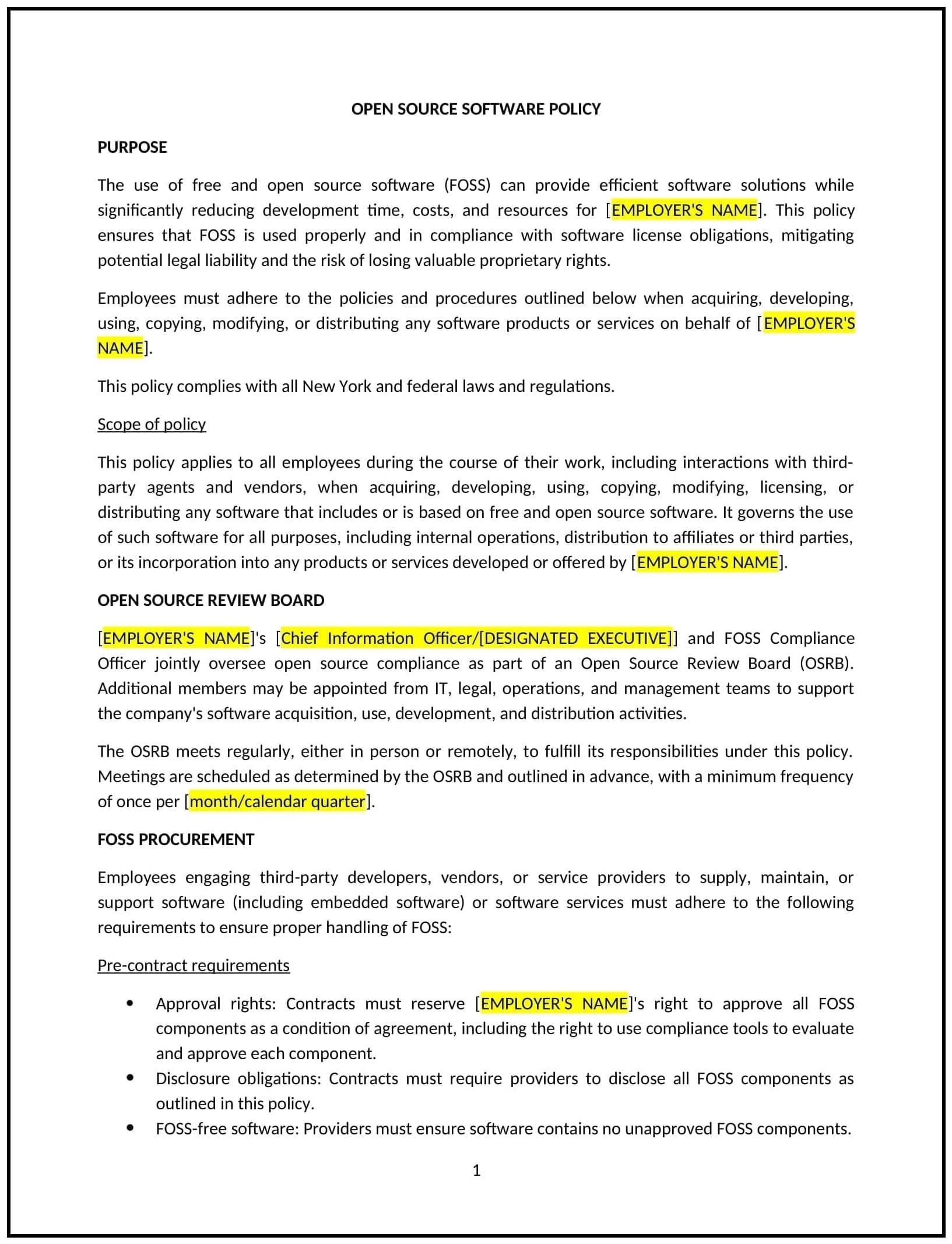Open source software policy (New York): Free template
Got contracts to review? While you're here for policies, let Cobrief make contract review effortless—start your free review now.

Customize this template for free
Open source software policy (New York)
This open source software (OSS) policy is designed to help New York businesses establish clear guidelines for the use, contribution to, and management of open source software within the organization. Whether businesses are integrating OSS into their projects, contributing to external OSS communities, or managing compliance, this template provides a structured approach to mitigate risks and promote best practices.
By adopting this template, businesses can enhance innovation, support compliance with licensing requirements, and maintain control over their software development processes.
How to use this open source software policy (New York)
- Define acceptable use: Specify how OSS can be used within the organization, including guidelines for selecting and integrating OSS into projects.
- Establish contribution protocols: Outline the process for employees to contribute to external OSS projects, including obtaining approvals and ensuring alignment with business objectives.
- Address licensing compliance: Provide steps to identify and comply with OSS licenses, such as reviewing terms, avoiding incompatible licenses, and documenting usage.
- Set approval processes: Define the roles and responsibilities for evaluating, approving, and monitoring OSS usage in organizational projects.
- Include security measures: Detail practices for assessing OSS security risks, such as conducting vulnerability scans and monitoring for updates or patches.
Benefits of using an open source software policy (New York)
This policy offers several benefits for New York businesses:
- Reduces legal risks: Clear guidelines help businesses comply with OSS licenses and avoid potential legal disputes.
- Enhances innovation: Leveraging OSS enables businesses to accelerate development and reduce costs while maintaining quality.
- Promotes consistency: Structured protocols ensure that OSS usage and contributions align with organizational standards and objectives.
- Improves security: Proactive measures mitigate risks associated with vulnerabilities in OSS components.
- Encourages responsible contributions: Guidelines for OSS contributions help employees balance individual interests with business priorities.
Tips for using this open source software policy (New York)
- Train employees: Provide training on understanding OSS licenses, identifying risks, and following the organization’s OSS guidelines.
- Maintain an OSS inventory: Use tools to track and document all OSS components used in projects to simplify compliance and monitoring.
- Collaborate with legal advisors: Work with legal professionals to evaluate OSS licenses and address potential conflicts or obligations.
- Encourage updates: Regularly review OSS components for updates, patches, or replacements to maintain security and functionality.
- Review regularly: Update the policy to reflect changes in OSS practices, technology trends, or legal requirements.